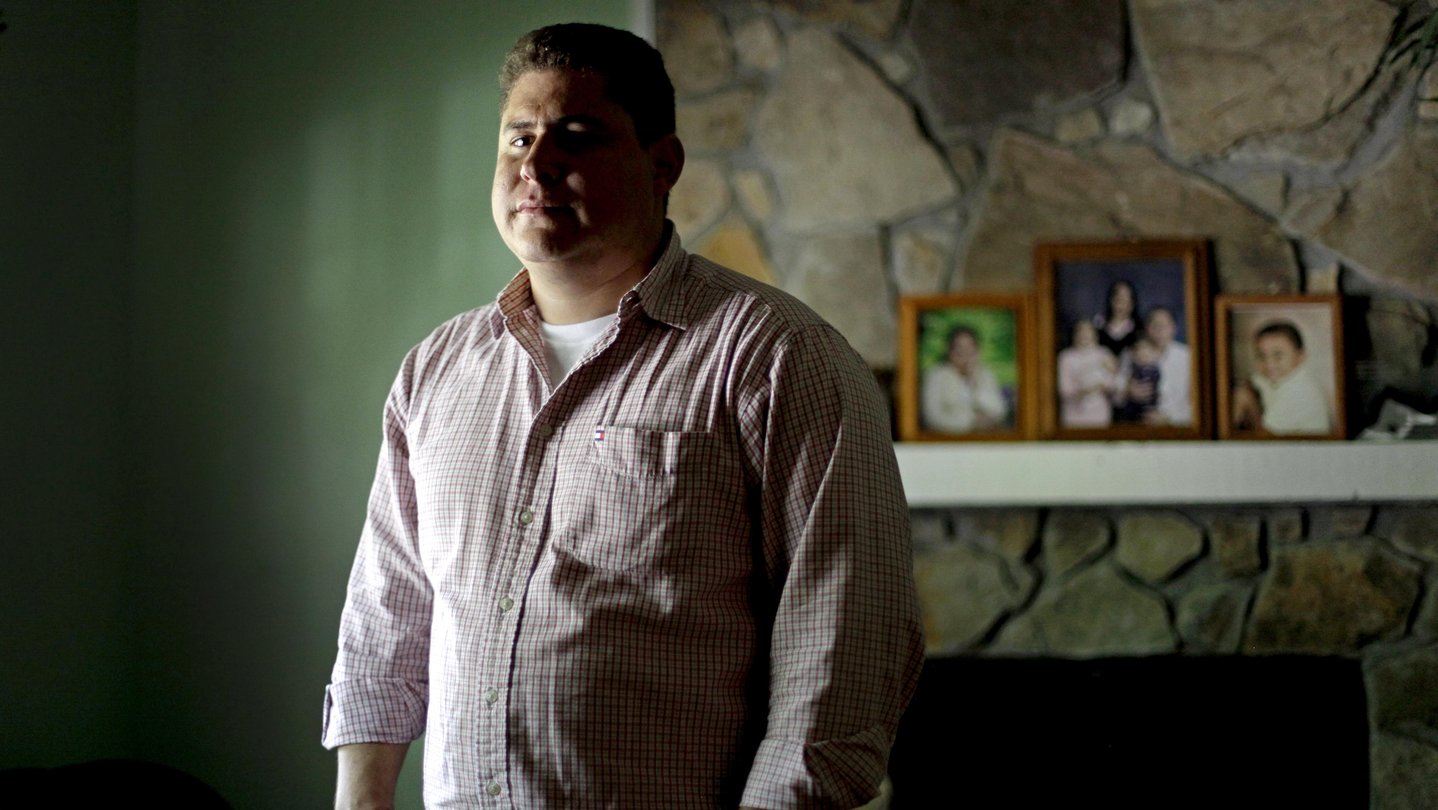Lawyers for Spanish-language journalist Mario Guevara and his family are asking a federal court to block U.S. Immigration and Customs Enforcement from deporting him while he is in their custody.
Guevara's lawyers, including those from the American Civil Liberties Union, asked Monday in the U.S. District Court in the Southern District of Georgia for his release and a halt to possible deportation after federal officials suddenly reopened an older immigration case on Friday. His lawyers also requested an emergency hearing and his release on Friday.
Guevara, a Salvadoran native who has lived in the United States since 2004, according to court documents, has been in immigration detention since June 14, when he was arrested during the livestream of an anti-ICE protest in Atlanta. His misdemeanor charges were eventually dropped, but only after he was transferred to Immigration and Customs Enforcement custody.
His arrest and continued detention have alarmed free speech advocates and drawn national attention.
The ACLU and Guevara's family, including his children Katherine and Oscar Guevara, are calling for his immediate release, saying his detention is unlawful and a violation of his First Amendment rights.
“No one in this country should have to face this fear of punishment for their freedom of expression. However, we remain hopeful that the government will do the right thing and release him immediately. His place is with his family and his community, not behind bars or facing deportation,” said Katherine Guevara.
ICE and Guevara's lawyers disagree about whether Guevara is in the United States legally
One point of contention in the case, however, is Guevara's immigration history. In a statement, ICE acting secretary Tricia McLaughlin said that “the facts of this case have not changed. Mario Guevara is in the country illegally.” McLaughlin said Guevara was granted voluntary departure in 2012, but refused to leave and subsequently “received a final removal order from an immigration judge in 2012.”
ACLU senior staff attorney Scarlet Kim disagreed, calling ICE's statement “false.” According to Kim, Guevara was granted voluntary departure in 2012, but he appealed the decision. His case was then administratively closed, legally allowing him to remain in the United States for the final 13 years.
“He never received a final deportation order,” Kim said in a statement.
ICE did not immediately respond to a request for clarification.
First Amendment experts say the Guevara case is part of a trend to suppress free speech
Kim said the immigration appeals board reopened the deportation process and reinstated the voluntary departure order on Friday, giving Guevara 60 days to leave the country voluntarily. The ACLU argued in a court filing Monday that because of his detention, ICE could undermine the voluntary departure order and deport him at any time.
“This decision makes the Court's intervention all the more urgent. Although Mr. Guevara was granted voluntary departure – giving him 60 days to voluntarily leave the United States – the government has given no assurances that it will not put him on a plane back to El Salvador at any time,” Guevara's lawyers wrote in the filing.
First Amendment experts said at a news conference Tuesday that the government's action against Guevara was part of a broader trend to stifle free speech and intimidate journalists. Clare Norins, a law professor and director of the First Amendment Clinic at the University of Georgia who also represents Guevara, said he is the only known journalist currently imprisoned in the United States for his reporting.
“Although all criminal charges against him were dropped, the government alleged that Mr. Guevara's filming and reporting of police activities in public made him a danger to the community. In other words, they continued to detain him for exercising his First Amendment rights to free speech and freedom of the press,” Norins said.
ICE has previously denied claims that Guevara's detention was related to his reporting.
This story was provided by WABE media partner Georgia Recorder.






